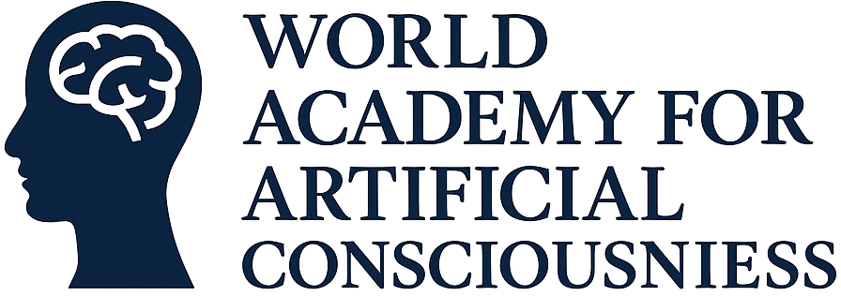_0.jpg)
We are pleased to announce that Professor Barbara Tversky—Professor of Psychology and Education at Teachers College, Columbia University, and Professor Emerita of Psychology at Stanford University—has been elected an Academician of the World Academy for Artificial Consciousness (WAAC), in recognition of her foundational contributions to spatial cognition, visual/gestural representation, and diagrammatic communication, as well as her sustained influence on cross-disciplinary methods in cognitive science.

Barbara Tversky places spatial thinking at the foundation of cognition: in her monograph Mind in Motion: How Action Shapes Thought, she systematically argues for a pathway from action and space to thought, emphasizing that spatial cognition is not peripheral but the bedrock of higher cognition. She and her collaborators further show that diagrams and gestures are powerful “tools for thought,” externalizing and reorganizing mental representations through charts, sketches, and gesture to markedly facilitate explanation and reasoning. These contributions have advanced an integrated understanding linking space/action, language, and reasoning; provided robust evidence for methodologies in education, design, human–computer interaction, and visualization; and inspired new approaches to representing and assessing artificial consciousness.
- Global Collaboration and Academic Ecosystem
The Academicians of WAAC come from universities and research institutions such as Harvard University, the Massachusetts Institute of Technology, the University of Cambridge, the University of California, the French Academy of Sciences, the University of Padua, the University of Queensland, Columbia University, and the University of Exeter, among others. Honorary Academicians represent multiple countries and regions, including the United States, the United Kingdom, France, Germany, Italy, Sweden, Canada, Australia, Spain, and China. Additionally, leading scientists from renowned research institutions and technology companies—such as Google, the Allen Institute for Brain Science, and Zeekr—are also involved.
- About WAAC

The World Academy for Artificial Consciousness (https://www.waac.ac/) is a global academic institution established in Paris in 2025. Its mission is to advance frontier research and international collaboration in artificial consciousness through the integration of science, technology, and philosophy. The Academy publishes open research, policy recommendations, evaluation standards, and more. The current President is Academician Yucong Duan, and the Secretary-General is Dr. Yingbo Li. The Honorary Academician List: On May 3, 2025, WAAC released its first batch of Top 100 Honorary Academicians, recognizing scholars who have made foundational or leading contributions to the theory of artificial consciousness.
